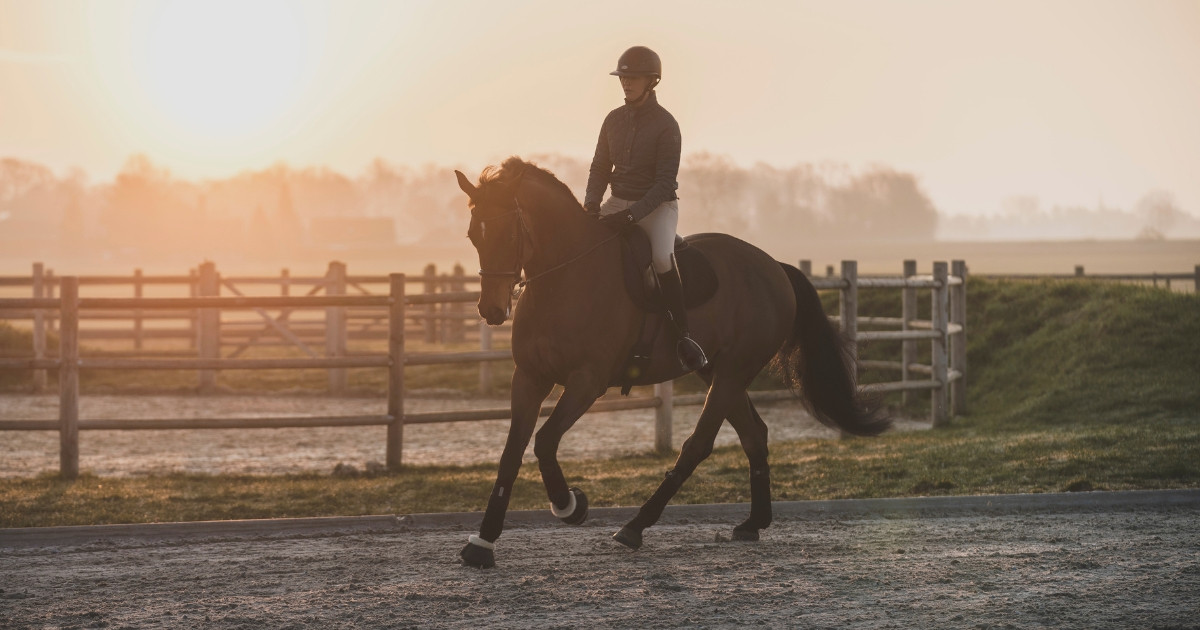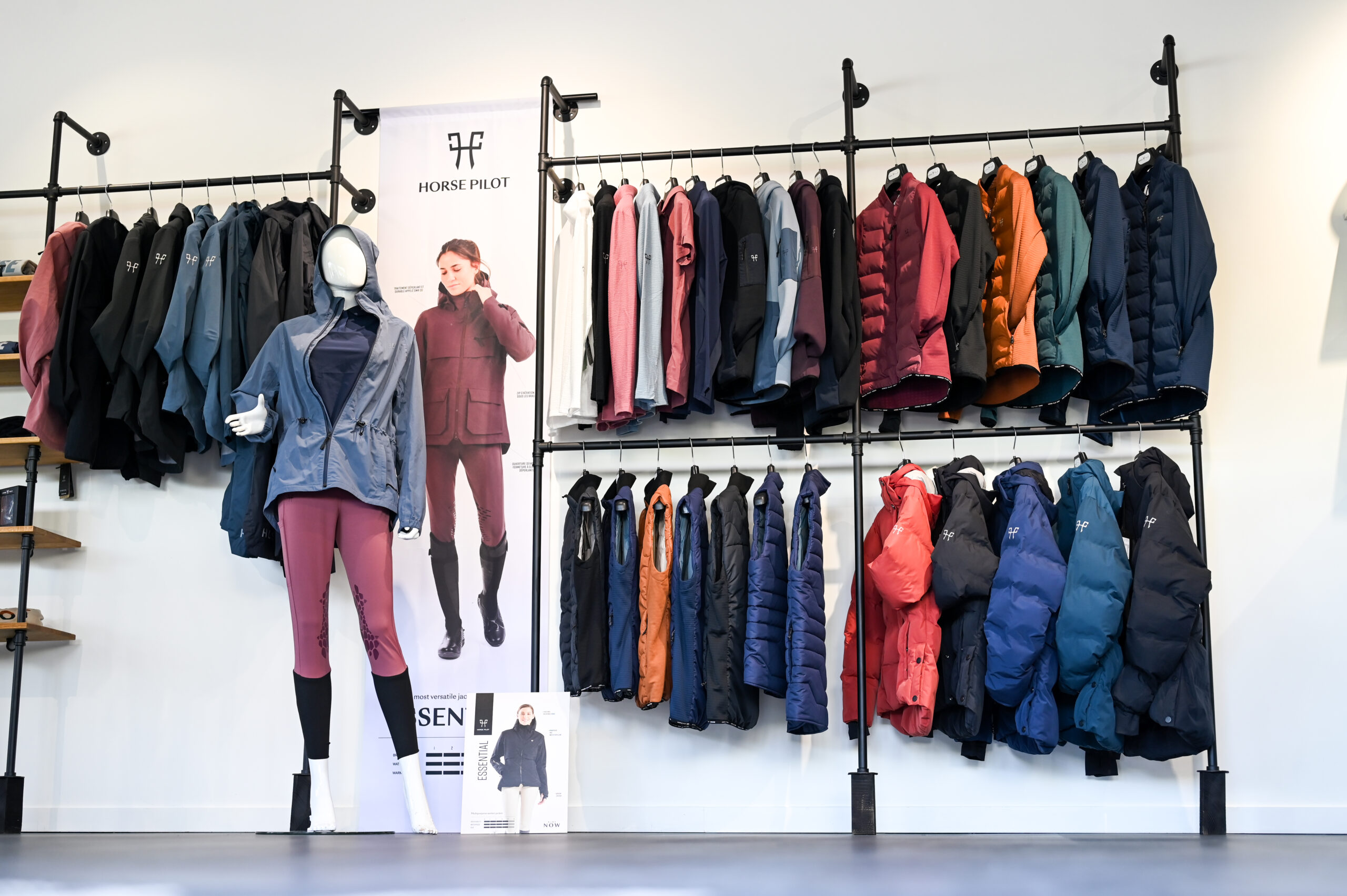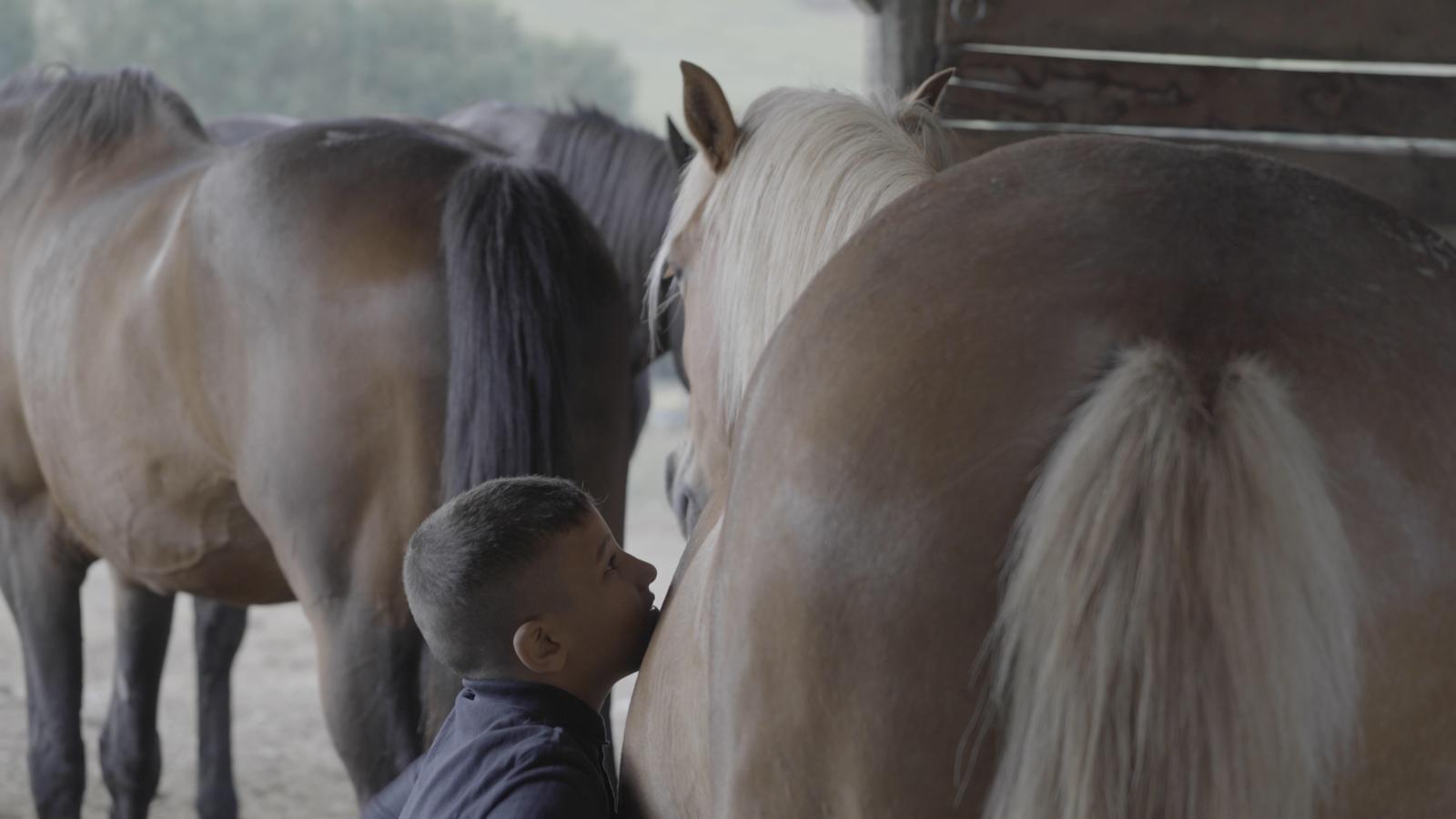
Supporting riders in their performance quest is synonymous with being with them during their training. Focus on dressage with Camille Judet-Chéret’s testimony, International French dressage rider, who shares with us her classic training to progress in the long term and working more deeply.
To start well dressage training
- Camille’s horses always start the warm up by 20 or 30 minutes of walker. Then, Camille rides her horse and walks from 10 to 15 minutes. During that time, she varies the walk, which is essential. It is the base of a good warm up.
Let’s move on to 20 minutes of stretching, during which Camille alternates between neck extension and transitions. That is a crucial step in the warm up that will give you a relaxed and attentive horse for the training coming.
Finally, the rider includes some light side work to her warm up.
Let’s focus on the session now.
The ideal dressage session
Camille does not practice her dressage test entirely during her training sessions. It is very occasional. However, she does chain exercises. The first one trotting, the second galloping.
Most of the time, the rider focuses her entire session to an exercise and its different steps of preparation. It will allow a perfect execution of the exercise chosen before. Here are some examples of dressage figures to enlighten you.
-
The pirouette
We start by some shoulder in, which will be followed by some head on the wall and some half-passes. Then, we add some haunches in, on a circle that we will shorten until we perform pirouette ou half-pirouette, how it looks like in the dressage test.
-
Flying changes
Step 1: isolated flying changes perfectly performed and some rigorously straight diagonals. Only after that, we can add flying changes lines at 4 or 3 times. Straightness, a good canter quality and balance have to be your priority.
-
Best for last: the piaffe
When we are getting ready for the piaffe, we start by doing multiple walk – trot – walk transitions. The horse has to be perfectly kept on the aids: alternation of half-halts and legs maintains a perfect balance and collection. The horse has to be attentive and receptive during the preparation so that we can easily start with the piaffe.
Let’s take a look at the end of our dressage rider’s training session.
End on a high note
After a good training session, it is really important to permit your dressage horse to relax. Camille does some neck extension exercises (trot or canter). It depends on your training. Finally, you can move on a well deserved rest with an active recovery, walking outside.
Camille’s final word
“Transitions are essential for working your horse the right way. It is a very important exercise, even for Grand Prix horses. In my opinion, it is the base of the training. It represents 80% of the job, no matter how old is your horse or his level. It will never be a mistake working transitions one hundred times.”
Camille also insisted on the importance of adapting your training sessions to the level of your horse, his age and his condition. The sessions can be very different in a same week, one day to another…
 ©Photo Equisense
©Photo Equisense
A discipline, an Outfitt
Perfect training means perfect outfit. Horse Pilot prepared a selection of products so that you can train in the best conditions. Combining ease, design and technicity is possible! Here are the products that we recommend for a very comfortable training session.
- For the top: wear a black Storm Jacket and an iron Optimax that will keep you warm during cold weather.

Black Storm Jacket

Iron Optimax
Once that summer is back, you will be able to replace them with a Suntech polo (for woman) or an Atlas polo (for man).

Beige Atlas Polo et Smooth Green Suntech Polo
- Concerning the breeches: you should wear grey X-Dress breeches that will fix you on your saddle (grip zone on seat and inside knee).

Grey X-Dress breeches
If you prefer pants that will have a grip zone only on the inside knee, the X-Design breeches are made for you.

Cloudy Blue X-Design breeches
–
What about you, what is your favorite training session outfit ?


